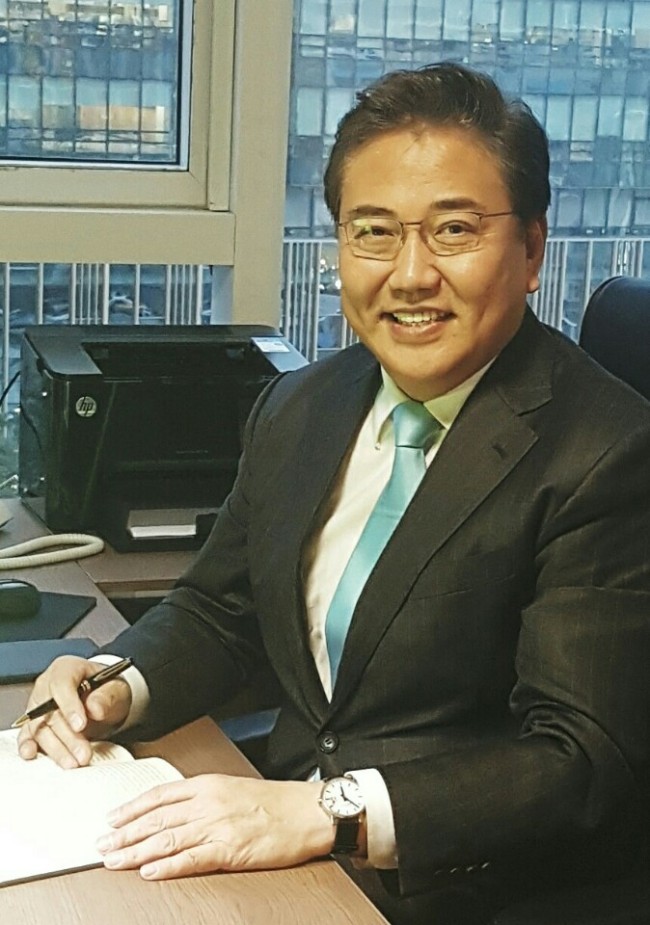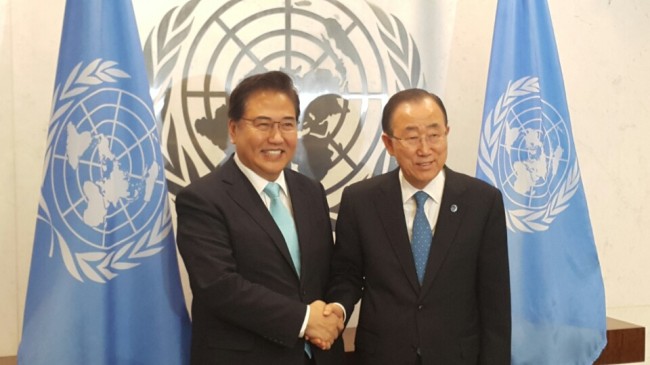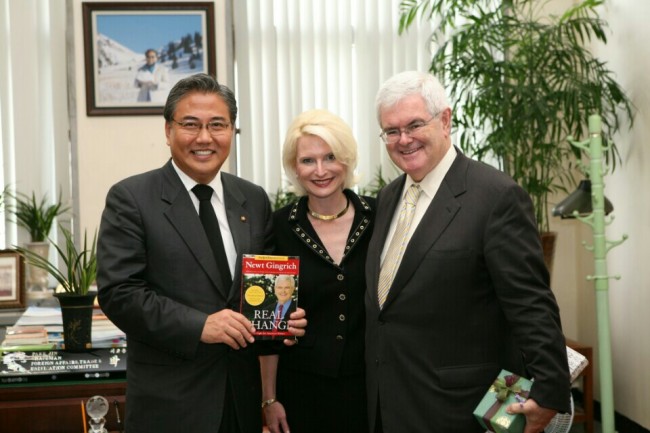koreaherald.com
New chair of Korean-American Association vows efforts to promote mutual understanding in Trump era
Over the course of his US presidential campaign, Donald Trump spared no criticism against the country’s free trade pact with South Korea. Calling it a “disaster” and a “job killer,” the populist politician threatened to pull out of the treaty once he took office.But the US president was not the first to express such a negative view about the deal. Ever since negotiations kicked off in 2007, Trump-like rhetoric had resonated with South Koreans, particularly among liberal politicians and labor unions.
“In hindsight, it was quite an irony that opposing voices emerged first in South Korea,” said Park Jin, the newly minted chairman of the Korean–American Association, a non-profit, non-government organization, during a recent interview with The Korea Herald.
 |
| Park Jin. Korean American Association. |
“They said if South Korea approved the FTA pact, it would become an economic colony of the US,” he added, recalling how he, then chairman of the parliamentary foreign affairs committee, was physically blocked by opposition lawmakers from sending the FTA ratification bill to the floor in 2009.
After two years of rancorous debate over the draft bill, the lawmakers came up with a revised version and passed it in 2011. The treaty took effect the following year.
A Harvard-educated three-term lawmaker versed in US affairs and foreign relations, Park refuted Trump’s claim that the Korea-US FTA doubled the US’ trade deficit with South Korea, saying Washington had enjoyed surpluses in services trade and its deficits in goods trade would have been larger without the deal.
According to US Census data last December, American companies exported $10 billion more in services -- mostly in travel, accounting, technology, entertainment and other services -- than they imported in 2015. The services trade surplus was $7 billion in 2011, before the FTA took effect.
Last June, US International Trade Commission analyzed that the pact actually improved its trade balance with South Korea by $15.8 billion to reach $28.2 billion in 2015, noting that the country would have seen a deficit of $44 billion without the FTA.
 |
| Park Jin and Former UN Secretary General Ban Ki-moon. KAA |
“If you want to come up with an assessment of a trade pact’s economic impact, you have to consider its impact on overall business, not just on trading merchandise. If you see the full picture of trade in goods, services and investment, the Korean-American bilateral trade is balanced.“ Park said.
He noted that the treaty’s job creating effect in the US by South Korean companies. According to a February report from American Chamber of Commerce in Korea, South Korean companies operating in the US, such as Hyundai Motor and its affiliate Kia Motors, have created more than 45,000 American jobs.
Still, he warned that the US was “more than likely” to push for a major review of the deal in its favor, suggesting that the Korean government prepare measures to ensure market access for automakers and petrochemical and electronics companies.
“The US is likely to ask for satisfactory market access to the Korean legal and pharmaceutical sectors as well as further deregulation and removal of non-tariff barriers,” Park predicted, adding that Korea and the US can consult each other to faithfully implement the agreement and make it even more fair and transparent.
 |
| Park Jin and former US House Speaker Newt Gingrich. KAA |
For Park, who has devoted most of his academic and public career to foreign affairs, particularly US relations, the key to raising awareness of the Korea-FTA deal’s mutual benefits is public diplomacy.
The KAA chairman vowed to use his organization’s connections to reach out to policymakers in the US and exchange ideas on how to promote the 64-year-old alliance.
On Jan. 20, when the inauguration ceremony of President Trump took place, Park visited Washington and met senior Trump administrationofficials, including Newt Gingrich, the former speaker of the House of Representatives.
“The Trump administration began its term when the Korea-US alliance was about to begin the second chapter of its history. There will be a mixture of opportunities and challenges. That is why we need to communicate and engage more with the new administration,” he said.
“I think we will have a bigger role to play during the Trump era. Not only do we build various sub-committees to discuss diverse agendas and foster bond between the two countries, particularly among the young people. We will formulate our agenda regularly and deliver it to US citizens and those interested in Korea-US alliance.”
By Yeo Jun-suk (jasonyeo@heraldcorp.com)
No comments:
Post a Comment